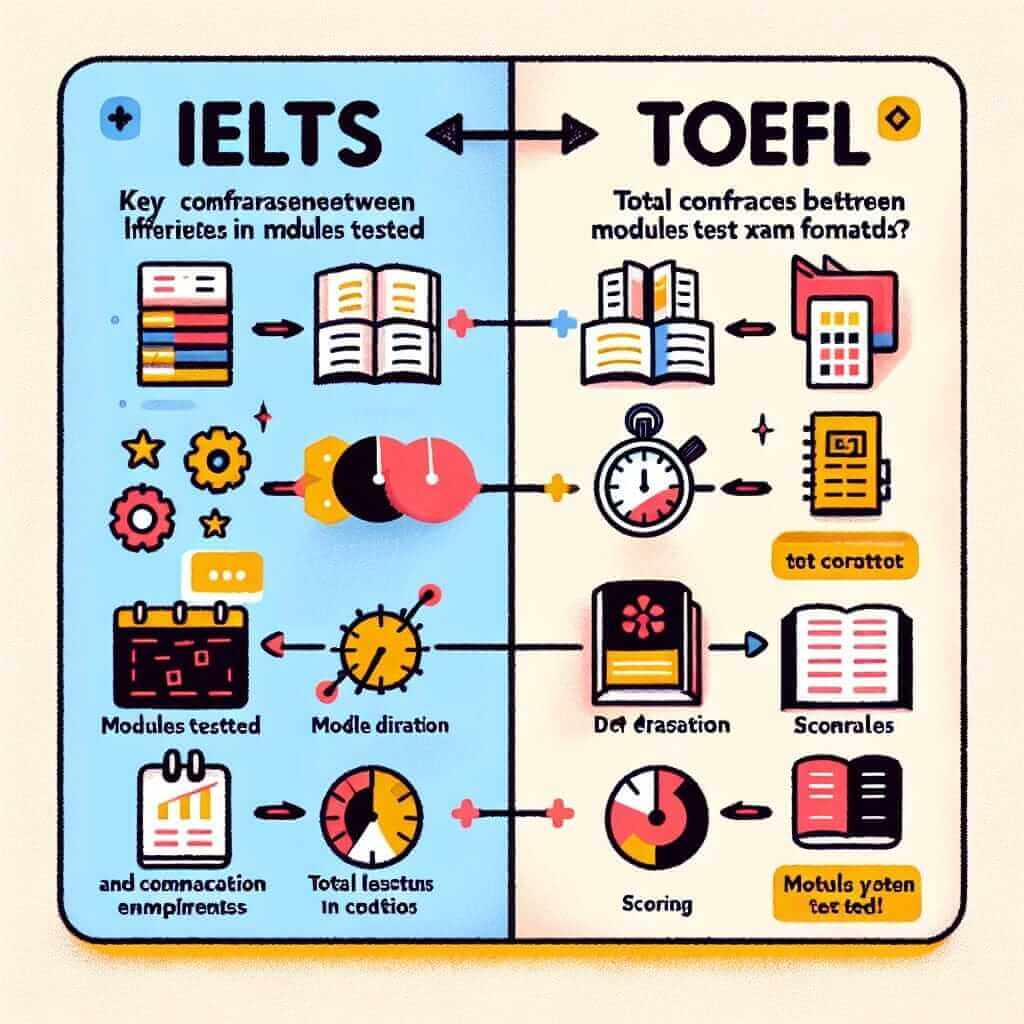Introduction
In the world of English language proficiency tests, the IELTS (International English Language Testing System) and TOEFL (Test of English as a Foreign Language) stand as the two most recognized and widely accepted exams. While both serve as gateways to academic and professional opportunities, there’s a noticeable trend of test-takers gravitating towards IELTS. But why? This article delves into the reasons behind the growing preference for IELTS over TOEFL.
Understanding the Key Differences: IELTS vs. TOEFL
Exam Format and Content: A Closer Look
One of the primary reasons behind the preference for IELTS lies in its exam format. IELTS assesses English proficiency across four modules: Listening, Reading, Writing, and Speaking. The speaking test, a face-to-face interview with a certified examiner, is often highlighted as a more realistic and less intimidating experience than the TOEFL’s computer-based speaking section.
Furthermore, IELTS offers two versions: Academic and General Training. This distinction allows test-takers to choose the format aligned with their specific needs – Academic for higher education and General Training for work experience or migration purposes. Conversely, TOEFL primarily focuses on academic English, which might not resonate with individuals seeking opportunities outside academia.
Evaluating Linguistic Variety: British vs. North American English
Another factor contributing to IELTS’s popularity is its acceptance of both British and North American English. This inclusivity makes IELTS a more appealing option for test-takers from diverse linguistic backgrounds, allowing them to demonstrate their English proficiency comfortably. In contrast, TOEFL primarily emphasizes North American English, which might put test-takers unfamiliar with this dialect at a disadvantage.
Analyzing Test Duration and Scheduling Flexibility
The duration and scheduling flexibility of IELTS also contribute to its appeal. The entire IELTS exam is shorter than the TOEFL, taking approximately 2 hours and 45 minutes compared to TOEFL’s 4 hours. This condensed format can be less tiring and more manageable for test-takers, especially those with time constraints. Additionally, IELTS offers more frequent test dates and locations globally, providing greater convenience and flexibility to schedule the exam at a time and place that suits them.

Illustrative Examples from Real IELTS Exams
To understand the practical implications of these differences, let’s consider a few examples:
-
Speaking Test: In the IELTS Speaking test, candidates engage in a natural conversation with the examiner, discussing a range of topics, from everyday life experiences to abstract concepts. This format allows for a more accurate assessment of conversational fluency and pronunciation.
-
Writing Task 2: The IELTS Writing Task 2 often presents real-world issues, requiring test-takers to develop arguments and express opinions logically and cohesively. This focus on practical writing skills aligns well with the demands of academic and professional settings.
Tips for Excelling in Your IELTS Exam
-
Familiarize Yourself with the Format: A thorough understanding of the exam structure, question types, and time limits is crucial for effective preparation.
-
Practice Regularly: Engage in consistent practice across all modules, focusing on your weaknesses and refining your strengths.
-
Develop Strong Vocabulary and Grammar: A wide range of vocabulary and a firm grasp of grammar are essential for achieving a high score.
-
Enhance Your Speaking and Listening Skills: Engage in regular conversations with native speakers or language partners to improve fluency and comprehension.
-
Seek Professional Guidance: Consider enrolling in an IELTS preparation course or working with a qualified tutor to receive personalized feedback and guidance.
Conclusion
The choice between IELTS and TOEFL ultimately depends on individual needs and goals. However, the factors discussed – a user-friendly format, acceptance of diverse English accents, shorter duration, and greater scheduling flexibility – contribute significantly to the widespread preference for IELTS. By understanding these factors and implementing the tips provided, you can confidently approach your IELTS exam and maximize your chances of success.